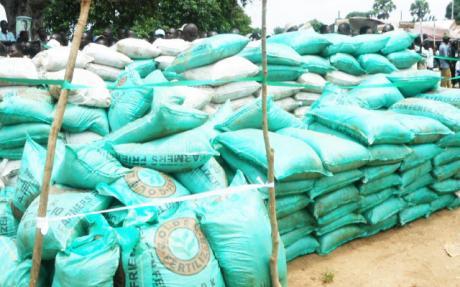
An event was held by the Nigeria Sovereign Investment Authority to discuss the significant impact of the Presidential Fertiliser Initiative on the nation’s agricultural sector. Since its launch in 2016, the initiative has played a crucial role in transforming the sector.
By eliminating fertiliser subsidies, the initiative has managed to annually save Nigeria over N60 billion. The stakeholders’ roundtable, which took place on Monday, focused on the achievements of the initiative and outlined future plans.
NSIA spokesperson, Joyce Onyegbula, mentioned in a statement released on Monday that the PFI not only rectified long-standing inefficiencies in Nigeria’s fertiliser sector but also facilitated the revival and establishment of 84 blending plants across the country’s six geo-political zones.
This accomplishment has resulted in the creation of over 100,000 direct and indirect job opportunities and the saving of more than $200 million in foreign exchange.
Highlighting the successes of the PFI, the statement mentioned, “The PFI, managed strategically by the NSIA, has successfully revived and established 84 blending plants across Nigeria’s six geo-political zones, saved over USD200 million in foreign exchange, created more than 100,000 direct and indirect jobs, and realized annual fiscal savings exceeding N60 billion through the elimination of fertiliser subsidies. To date, the initiative has distributed 90 million bags of locally blended high-quality fertilizers to farmers.”
During the event, the CEO of NSIA, Aminu Umar-Sadiq, represented by Sybil Etuk, the Head of Corporate Planning at NSIA, emphasized how the PFI aligns with the authority’s objective of bolstering the agricultural sector, promoting import substitution as a vital driver for national development, and ultimately creating shared value for all stakeholders.
Despite challenges like the COVID-19 pandemic and the Russia-Ukraine war, the PFI has ensured a consistent supply of fertilisers to support the country’s agricultural productivity.
However, the NSIA recognized that foreign exchange fluctuations remain a concern, especially in procuring essential imported raw materials, thereby complicating the value chain.
The authority’s Project Lead, Iruansi Itoandon, lauded the initiative as “a shining example of what we can achieve when we collaborate with a unified vision for our country’s future.”
Looking forward, the NSIA aims to enhance the impact of the PFI further, with ongoing discussions about transitioning the initiative to full private sector management for sustained success.
Sadiq Kassim, the President of the Fertiliser Producers and Suppliers Association of Nigeria, suggested establishing a fertiliser institute in partnership with FEPSAN to “enhance the technical and financial capabilities of stakeholders within the ecosystem.”
